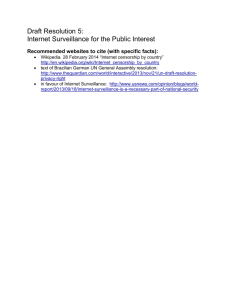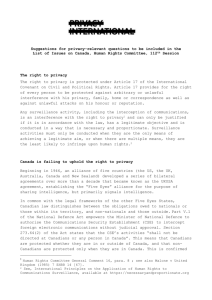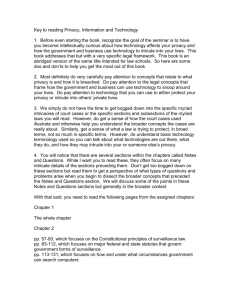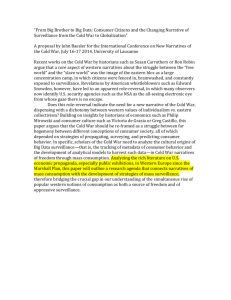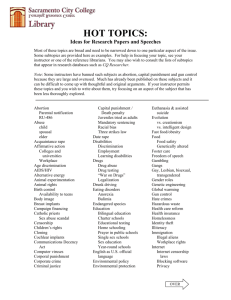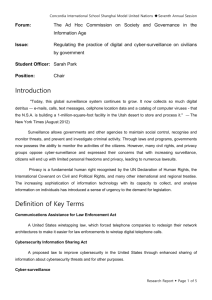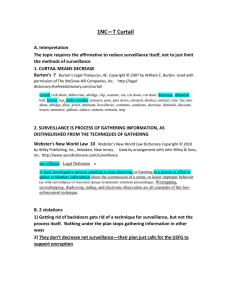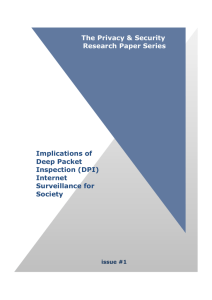Drama of the Law: Free Speech: Constitutional Issues
advertisement
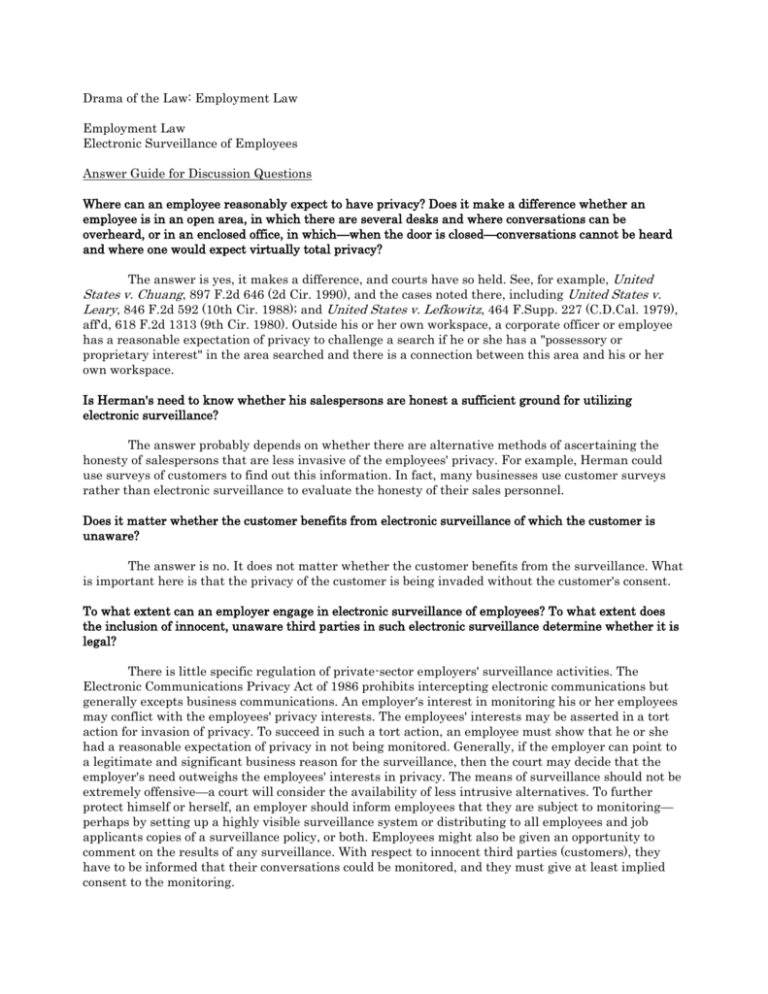
Drama of the Law: Employment Law Employment Law Electronic Surveillance of Employees Answer Guide for Discussion Questions Where can an employee reasonably expect to have privacy? Does it make a difference whether an employee is in an open area, in which there are several desks and where conversations can be overheard, or in an enclosed office, in which—when the door is closed—conversations cannot be heard and where one would expect virtually total privacy? The answer is yes, it makes a difference, and courts have so held. See, for example, United States v. Chuang, 897 F.2d 646 (2d Cir. 1990), and the cases noted there, including United States v. Leary, 846 F.2d 592 (10th Cir. 1988); and United States v. Lefkowitz, 464 F.Supp. 227 (C.D.Cal. 1979), aff'd, 618 F.2d 1313 (9th Cir. 1980). Outside his or her own workspace, a corporate officer or employee has a reasonable expectation of privacy to challenge a search if he or she has a "possessory or proprietary interest" in the area searched and there is a connection between this area and his or her own workspace. Is Herman's need to know whether his salespersons are honest a sufficient ground for utilizing electronic surveillance? The answer probably depends on whether there are alternative methods of ascertaining the honesty of salespersons that are less invasive of the employees' privacy. For example, Herman could use surveys of customers to find out this information. In fact, many businesses use customer surveys rather than electronic surveillance to evaluate the honesty of their sales personnel. Does it matter whether the customer benefits from electronic surveillance of which the customer is unaware? The answer is no. It does not matter whether the customer benefits from the surveillance. What is important here is that the privacy of the customer is being invaded without the customer's consent. To what extent can an employer engage in electronic surveillance of employees? To what extent does the inclusion of innocent, unaware third parties in such electronic surveillance determine whether it is legal? There is little specific regulation of private-sector employers' surveillance activities. The Electronic Communications Privacy Act of 1986 prohibits intercepting electronic communications but generally excepts business communications. An employer's interest in monitoring his or her employees may conflict with the employees' privacy interests. The employees' interests may be asserted in a tort action for invasion of privacy. To succeed in such a tort action, an employee must show that he or she had a reasonable expectation of privacy in not being monitored. Generally, if the employer can point to a legitimate and significant business reason for the surveillance, then the court may decide that the employer's need outweighs the employees' interests in privacy. The means of surveillance should not be extremely offensive—a court will consider the availability of less intrusive alternatives. To further protect himself or herself, an employer should inform employees that they are subject to monitoring— perhaps by setting up a highly visible surveillance system or distributing to all employees and job applicants copies of a surveillance policy, or both. Employees might also be given an opportunity to comment on the results of any surveillance. With respect to innocent third parties (customers), they have to be informed that their conversations could be monitored, and they must give at least implied consent to the monitoring. Copyright 2004 South-Western, a division of Cengage Learning, Inc. Cengage Learning is a trademark used herein under license.

